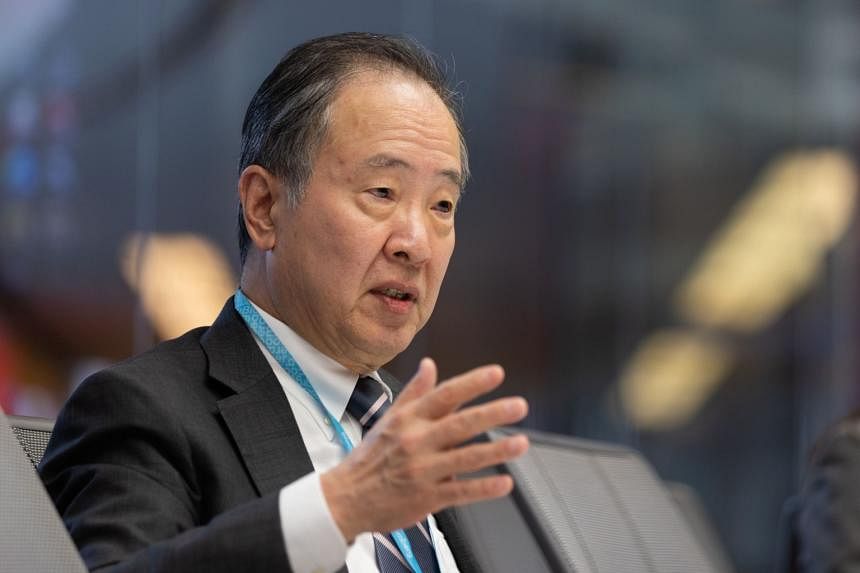WASHINGTON (BLOOMBERG) - The US and allies must balance sending a clear message to China over Taiwan with the need to avoid escalation as Asia enters a "sinister period" of tensions, Japan's top envoy to the US said.
"We need to respond, we need to send a clear message," Ambassador Koji Tomita said in an interview on Tuesday (Aug 24) at Bloomberg's New York headquarters. "We have to act firmly, but wisely, because we have to be careful that we should not go to into an escalatory cycle."
Mr Tomita said China sought to use US House Speaker Nancy Pelosi's visit to Taiwan earlier this month as a "pretext to do something very aggressive" and change the status quo in the Taiwan Strait, launching missiles that landed in the waters of Japan's Exclusive Economic Zone.
Japan's national security adviser Takeo Akiba raised the issue in a conversation that stretched for about seven hours recently with senior Chinese diplomat Yang Jiechi, Mr Tomita said.
Even as the region is "going into a rather sinister period", with tensions soaring after Pelosi's visit, Mr Tomita said, China is entering a "delicate period" before an important Chinese Communist Party meeting in which President Xi Jinping is expected to be given a third term in power.
"In the coming weeks, we need to exercise caution in the hope of managing the situation," Mr Tomita said. "But at the same time we need to continue our efforts in the context of our alliance cooperation. We need to step up efforts to upgrade our deterrence and capabilities."
Chips, trade
His remarks came as a number of foreign delegations visited Taiwan in recent days despite the fierce objections of Beijing, which views the island as its own.
"There's no reason why those people should not go to Taiwan," he said, "given the importance of Taiwan in the geographical environment and in the context of industrial production and cooperation with chips."
The ambassador offered cautious praise for recent US efforts to promote trade in Asia, including the Indo-Pacific Economic Framework that President Joe Biden announced in Tokyo in May.
But Mr Tomita also said he hopes for deeper trade ties that bring "tangible benefits" to countries in the region, including perhaps an eventual return to a revamped version of the Trans Pacific Partnership trade deal that the US abandoned under the Trump administration.
He said the collapse of that accord missed the "strategic purpose" of anchoring the US among the fast-growing economies of Asia and has left a void for China to apply for membership in the reworked - and renamed - Comprehensive and Progressive Agreement for Trans-Pacific Partnership.
"Now with the US gone, China is applying for the CPTPP, and the question is how we go about trying to realise the strategic vision of the TPP - and there's no quick answer because we recognise the political constraints you have in terms of coming back to the TPP," Mr Tomita said.
He said Mr Biden's Indo-Pacific trade pact will be a "very important vehicle" for the US to re-engage in Asia even if it doesn't include the market access provisions of the deeper TPP deal.
"I don't think we should denigrate the effort taken by the administration," he said. "I think we can work together to create something very tangible." Asked, however, if he would welcome a US joining the CPTPP, the ambassador said: "Of course."

